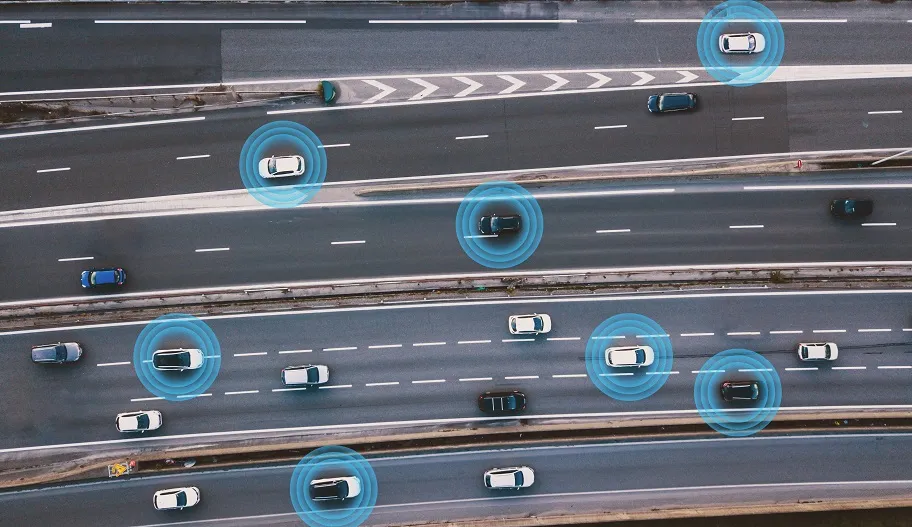The new i-Motors project, led by academics from the University of Nottingham’s Geospatial Institute and Human Factors Research Group and digital technology company Control F1, aims to build a mobile platform that allows vehicles of different manufacturers and origins to transfer and store data.
The project, which has received a US$1.9 million award from the UK’s innovation agency Innovate UK sets out to establish a set of universal standards on how vehicles communicate with each other, and with other ma
February 1, 2016
Read time: 2 mins
The new i-Motors project, led by academics from the University of Nottingham’s Geospatial Institute and Human Factors Research Group and digital technology company Control F1, aims to build a mobile platform that allows vehicles of different manufacturers and origins to transfer and store data.
The project, which has received a US$1.9 million award from the UK’s innovation agency Innovate UK sets out to establish a set of universal standards on how vehicles communicate with each other, and with other machines.
The i-Motors team will use patented technology, which it says allows data to be collected and analysed at greater speeds than ever before.
Capitalising on the experience of traffic management experts InfoHub, these data can then be combined with other data sources such as weather reports, event data and traffic feeds, easing congestion and increasing safety through real time updates and route planning.
In addition, the platform will allow vehicles to report errors, which can be automatically crosschecked against similar reports to diagnose the problem and reduce the chance of a breakdown.
The project will adopt a human-centred approach, aiming to understand the complex issues involved in the provision of new information and services for the ‘drivers’ of future vehicles.
Tapping into Head Communications’ expertise, i-Motors will also address the issue of limited connectivity by developing sensors capable of transmitting data to the cloud in real time. Through installing these sensors, known as Beyond Line of Sight (BLOS), vehicles can remain connected with sub-metre precision, even when out of internet and GPS range.
The project will make use of Huduma’s experience working on telecoms solutions on a global scale to make i-Motors sustainable and commercially successful in the long term.
i-Motors already has the backing of Nottingham, Coventry and Sheffield City Councils, where the new technology will first be piloted, and a letter of support from the Transport Systems and Satellite Applications Catapult, and fleet management experts Isotrak.
The project will make use of live vehicle data provided by Ford, which has an ongoing relationship with the University of Nottingham.
The project, which has received a US$1.9 million award from the UK’s innovation agency Innovate UK sets out to establish a set of universal standards on how vehicles communicate with each other, and with other machines.
The i-Motors team will use patented technology, which it says allows data to be collected and analysed at greater speeds than ever before.
Capitalising on the experience of traffic management experts InfoHub, these data can then be combined with other data sources such as weather reports, event data and traffic feeds, easing congestion and increasing safety through real time updates and route planning.
In addition, the platform will allow vehicles to report errors, which can be automatically crosschecked against similar reports to diagnose the problem and reduce the chance of a breakdown.
The project will adopt a human-centred approach, aiming to understand the complex issues involved in the provision of new information and services for the ‘drivers’ of future vehicles.
Tapping into Head Communications’ expertise, i-Motors will also address the issue of limited connectivity by developing sensors capable of transmitting data to the cloud in real time. Through installing these sensors, known as Beyond Line of Sight (BLOS), vehicles can remain connected with sub-metre precision, even when out of internet and GPS range.
The project will make use of Huduma’s experience working on telecoms solutions on a global scale to make i-Motors sustainable and commercially successful in the long term.
i-Motors already has the backing of Nottingham, Coventry and Sheffield City Councils, where the new technology will first be piloted, and a letter of support from the Transport Systems and Satellite Applications Catapult, and fleet management experts Isotrak.
The project will make use of live vehicle data provided by Ford, which has an ongoing relationship with the University of Nottingham.










